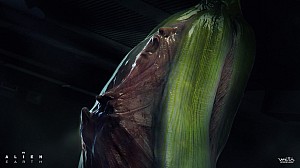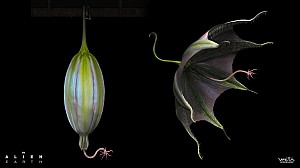David revelation in Advent
Alien: Covenant Forum Topic
Nathan Adler
MemberFacehuggerAug 19, 20174002 Views2 RepliesIn Advent David reveals the Black Goo to be advanced nano A.I. (not organic), made by the Engineers. So why did the Engineer on LV-223 come across as averse to David, and Peter Weyland/ humanity for creating A.I., if his own race had earlier created nano A.I., and when he was ready to drop a payload of the stuff on us 2,000 years earlier?
Also, did anyone think David's sketches of Engineer limbs in this short was influenced by Giger's other work, San Gottardo?
Are you an avid Alien fan looking for a dedicated online community of likeminded fans? Look no further! Create your own profile today and take part in our forums and gain XP points for all the content you post!












